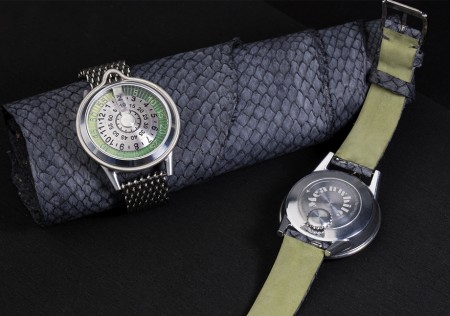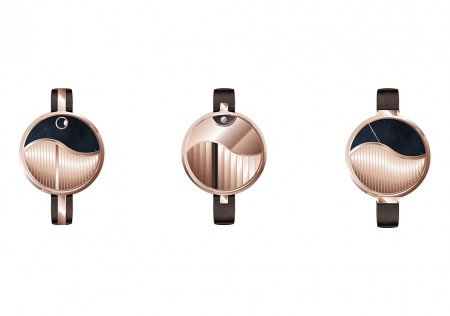- The school
- Studies and Research
- BACHELOR
- MASTER
- TRANSDISCIPLINARITY
- POOLS
- Research
- Workspace - CERCCO
- CONTINUING EDUCATION
- For students
- Studying at the HEAD
- InfoLab
- Living in Geneva
- Tuition fees and sholarship
- Library
- Regulations and instructions
- Projects
- Events
- Press
- Partnerships and prizes
Chair in Watch Design
The Watch Design Chair offers a specialised course dedicated to watch design and culture. Watchmaking, the Swiss heritage industry par excellence, is a complex field of expression that mixes history with technique, creativity and economy. In fact, there is not one watchmaking industry, but several: the luxury watch, the entry-level watch, the professional watch, the lifestyle accessory. All these watches revolve around a same centre of gravity, design: the heart and soul of everything that makes Swiss watches unique, and its underlying creativity and ability to reinvent itself constantly.
For a long time, the impetus came from the industry itself, but the challenge of creativity has become so predominant that an academic response has become necessary. The Watch Design Chair is precisely intended to complement the industry, to help renew it, as a source of inspiration and innovation, with a sense of freedom and transversality that watch brands, by nature, cannot achieve alone.
The challenge is considerable, and the means are equal to it. During their training, students acquire design skills and learn to interact with the entire industry through seminars, talks, visits and workshops, where most of the creative projects are carried out in connection with brands.
During their training, students develop a watchmaking culture in the broadest sense of the word that includes history, current trends, strategic issues for the future, manufacturers, subcontractors, and mechanical complications. The students also follow courses in the Product/Jewellery and Accessory Design Bachelor’s degree, which opens up the spectrum to the fashion sector.
The students also get to hone their own creativity by approaching watchmaking in its entirety, from the 3D prototype to the finished watch, packaging, product environment, and project management, and from art direction to marketing positioning.
At the Master’s level, the Chair in Watch Design offer the following programme:
- perfecting technical knowledge of watchmaking, construction and watch complications
- computer skills (CAD SolidWorks, Creative Suite improvement, 3D rendering/photorealistic images),
- drawings, sketches, freehand sketches, perspectives and renderings,
- display, packaging, photography as well as graphic design and layout specific to watchmaking codes,
- coaching and specialized workshops in watch marketing, issues and trends in the field
- watchmaking culture, history, traditional and social media, watchmaking communication.
For their dissertation, students may choose to carry out a personal project or one related to an existing brand. Thus, at the end of their studies, graduates are able to work in the watchmaking field as qualified junior designers.
Teaching language: English. See all language requirements
The Masters in Design are taught in English.
Candidates whose high school diploma or Bachelor's degree was not issued by an English-speaking institution must, after admission, submit by 30 June:
- a B2-level English language certificate, based on the global scale of the Common European Framework of Reference for Languages. This certificate must be produced by a language school or other recognized institution.
- or, a TOEFL test taken no earlier than 1 July 2022, with a minimum score of 92
- or, an IELTS test taken no earlier than 1 July 2022, with a minimum score of 7.0
If applicants fail to submit one of the aforementioned proofs of English language proficiency by 30 June, the admission offer lapses immediately.
Head of Department
Valérie Ursenbacher
Deputy head of Department
Nina Gander
Scientific Collaborator
Stéphanie Van Zwam
Assistant
Cyril De Froment
Pauline Hepner
Invited speakers
Astrid Alberto, Sandra Amodio, Yvan Arpa, Alex Ballmer, Félix Baumgartner, David Cuenat, Vanessa Lecci, Julien Bernard, Marco Borraccino, Michel Cover, Marie Chassot, Laurent Davoli, Singal et Sophie Depéry, Sophie Furley, Viviane Fankhauser, Stéphane Gachet, Cécile Guenat, Jiyoun Han, Armand Jost, Vanessa Lecci, David Maillard, Serge Maillard, Nicolas Mertenat, Neftali Nortario, Grégory Gardinetti, Jean-Marie Schaller, Alain Silberstein, Didier Théraulaz, Serena Trabalza, Nicolas et Laurent Wiederrecht



